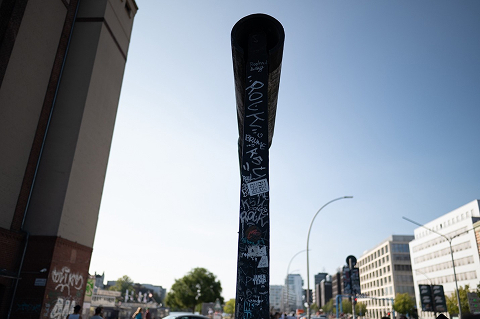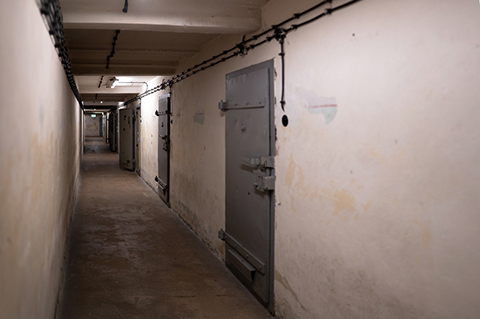2024 Germany
2024 Germany Summer School Report
September 25, 2024
Waseda University Field of specialization: International Education, International student mobility. Graduate School of Asia-Pacific Studies
Research Presentation and Feedback
Reearch theme
In Germany, I have presented my research proposal titled “Study abroad and Postnational Identity Development: Implications for Reconciliation and Peacebuilding – A Study of ASEAN Students in Japan. This empirical research proposal examines the mediating role of postnational identity development in the relationship between international education experiences and attitudes toward reconciliation and peacebuillding, using a case study of ASEAN students and alumni who have had study abroad experience in Japan. As international education gains recognition for its potential in fostering reconciliation and peacebuilding, this study seeks to illuminate how the formation of more inclusive, transnational identities through study abroad experiences influences students’ views on historical issues and their visions for a peaceful shared future within ASEAN as well as ASEAN – Japan relations.
My study intends to employ a mixed-methods approach, combining quantitative surveys and qualitative interviews with ASEAN students and alumni who have studied in Japan. I will explore how international education experiences contribute to the development of postnational identities, conceptualized in cognitive, affective, and imagined dimensions. I then delve into how these evolving postnational identities mediate students’ understanding of historical narratives, their attitudes towards reconciliation, and their perceived role in promoting regional peace and harmony.
Grounded in a conceptual model of postnational identity, international education theories, social-psychological perspective on reconciliation, and transformative peacebuilding, this study aims to contribute to our understanding of how international education can foster reconciliation and promote a global culture of peace. The findings are expected to have significant implications for policies on international education, student mobility, and regional peacebuilding efforts in the ASEAN-Japan context.
Research Motivation
There are several reasons that motivated me to pursue this research. One key motivation comes from the fact that there is lack of theoretical conceptualizaton and empirical evidence on how international education actually contribute to the processess of reconciliation and peacebuilding. Even the historical development of international education has always been built on the idea of promoting peace, one of the key question remain: What kind of experiences or contents of international education actually contribute to peace, through what kind of mechanism? To answering that question, exploring the impact of international education experience from the perspective of students is crucial, yet, empriical studies are also lacking.
Furtheremore, I also want to empirically explore this impact in ASEAN-Japan context, considering its contextual relevance. The relationship among nations in ASEAN community as well as between ASEAN and Japan provide an compleing case for examining the impact of international education experiences on attitudes toward reconciliation processes and peacebuilding. ASEAN community building itself face challenges due to historical conflicts and diversity among member states, while Japan’s historical relationship in Southeast Asia add another layer of complexity to ASEAN-Japan relations that require empirical exploration. Globally, the rise of aggressive nationalism as a challenge to reconciliation and peacebuilding efforts also applies to Southeast Asia, where nationalism is an important element of nation-state building projects.
Presentation Feedback
After the presentation, I have received several insightful feedbacks and questions. One of common questions emerged was how to measure or assess the impact of international educatione experiences on post-national identity (Prof. Asano and Prof. Leiner). This question highlights the need for impact measurement which is very important in reconciliation studies. Other questions relate to the impact of international education on national identity and nationalism raised by Prof. Kumagai, which is also crucial in addressing the rise of aggressive nationalism. Other comments raised the importance of considering personal and contextual factors that shaping students experience such as the power dynamics (Ms. Chau and Prof. Umemori). Furthermore, Prof. Leiner also suggested that it was not easy to bring different perspectives together to measure the impact, while Prof. Laura added that it was also very important to focus on presenting the findings on how the development of postnatinal identity could impact reconciliation and peacebuilding attitudes as well as how different manifestations of postnational identity could lead to different interpretations or perceptions toward reconciliation and peace. I find these questions and comments invaluable as they have helped me tremedously in refining my focus, methododology and future data analysis and presentation.
Interesting Discussions
During the summer school in Jena, Germany, I have learnt insightful things from other researchers. Despite I found it difficult to graps the key arguments of other researchers’ works in other fields such as philosophy and history, I became deeply aware the neccessity of transdisciplinary approach to reconcilation. I also became more familiar with phisophical and historical approaches to reconciliation. In other words, this experience has broaderned my perspective to think more about transdiscipinary studies as well as how to enhance my own research.
One interesting conversation I had was with Mr. Chen regarding Taiwan. We learn from each other to see how it is compared to the situation of Vietnam. When discussing Japan – Taiwan history and reconciliation efforts, I was surprised to know that there is still strong sentiment among Taiwanese people regarding the colonial legacy of Japan in Taiwan. According to Chen, it is even comparable to Japa – China and Japan -Korea contexts. I was not aware of the situation. Using Japan – Vietnam historical issue and reconciliation as a lens, I have always thought that both Vietnam and Taiwan shared some kind of similarity in terms of pragmatic, informal reconciliation approaches with Japan. These approaches have been understood and faciliated by both sides. This discussion has made me realized that reconciliation is a multifaceted processs that involves intertwined factors. I became more interested to see if such sentiments are still deeply existed in Vietnam, and how pragmatic economic and informal reconciliation efforts interact with such sentiments.
I was also particularly interested in discussing the roles of shrine in war memories and reconciliation between Japan and Taiwan, comparing to Okinawa context. With the limits of my knowledge regarding Taiwan and Okinawa, I think that shrines in Okinawa has been used as a mean to reconcile Okinawa local people and the idea of being Japanese, while shrines in Taiwan is the symbol of rejection of Taiwanese local people with the people from China’s mainland. From this perspective, I wonder how embracing Japanese shrine as a part of local Taiwanese culture to differentiate Taiwan from mainland China would contribute to reconciliation process with Japan’s colonial past.
Meaningful Memories
My most impressive memory was the trip to historical and memorial places in Berlin such as the Berlin Wall and the Gedenkstätte Berlin-Hohenschönhausen political prison because these remind me of how similar the situations had been in Germany compared to Vietnam.
Both Germany (post WW II) and Vietnam experienced division based on competing ideologies. Germany was split into East (communist) and West (capitalist) after World War II, while Vietnam was divided into North (communist) and South (anti-communist) after the First Indochina War. This ideological division deeply impacted both societies and led to decades of separation. The Berlin Wall was the symbol of the difference between the East and the West of Germany, just like the North and the South of Vietnam. It reminds me of a story of a Vietnamese communist party member sent to East Germany for training. For some reasons, he tried to cross the wall to the West. When he succeeded, he wrote to one of his comrades in Vietnam saying that: We have been cheated for so long. He never came back to Vietnam and became a German citizen. The Berlin wall has felt, Germany has united and transformed into a true democracy state and become a living evidence that reconciiation is possible, but to me there are still thousands of “invisible” walls existing in the world.

The Remaining of Berlin Wall
Visiting Gedenkstätte Berlin-Hohenschönhausen political prison, I learnt that East Germany was governed by the Socialist Unity Party of Germany (SED), a communist ruled state. Post-war Vietnam has also been under the sole leadership of the Communist Party. Both regimes exercised tight control over political, social, and economic life, suppressing opposition and alternative viewpoints. The Gedenkstätte Berlin-Hohenschönhausen is one of the symbol of Communist Germany, linked with the existance of secret police and surveillance. Today, it is a historical site for reconciliation in Germany, yet in present Vietnam, citizens are being sent into jail for just the same reasons. It was very difficult to express my feeling during the visit.
Germany is a living lesson for reconciliation for the rest of the world. After visiting those places, I understood much more about the role of collective memory and history in reconciliation. While the aim of reconciliation is to build a better future for post-conflict societies and humanity at large, it’s important to address the past, to be transparent and fair with the history, so that transitional justice can be achieved for people to heal and move forward. As a Vietnamese, the experience was particularly impactful.

Inside the Submarine of Gedenkstätte Berlin-Hohenschönhausen
Concluding Thoughts
The Summer School in Germany has been an invaluable experience. I gained profound insights in the transdisciplinary field of reconciliation and peacebuilding through both academic discourse and personal encounters. My research presentation on postnational identity development among ASEAN students in Japan received thoughtful and inspiring feedback. The interdisciplinary nature of the summer school broadened my perspective, emphasizing the necessity of transdisciplinary approaches to reconciliation studies. Listening to various presentations and engaging in interesting discussion have deepened my understanding of the role of collective memory in reconciliation such as the importance of addressing historical legacies transparently while working towards a shared future. The visits to historical sites and memorial places in Berlin such as the Berlin Wall and the Gedenkstätte Berlin-Hohenschönhausen political prison were impactful, particularly due to the commonality with Vietnam. I deepened my understanding of the universal challenges of ideological divisions as well as the potential for reconciliation and transformation. This summer school has inspired me on the possibilities of reconciliation both personally and professionally. It has also deepened my commitment to exploring how international education and identity development can contribute to reconciliation and peacebuilding.

